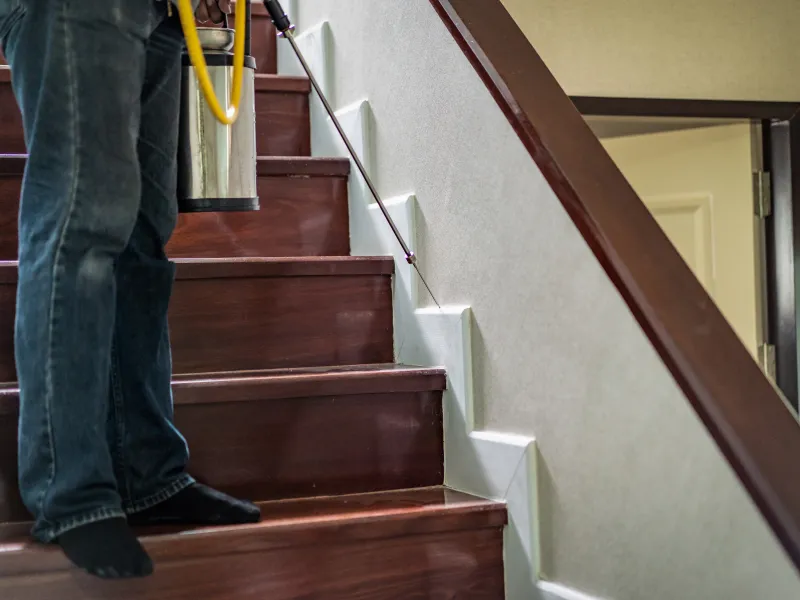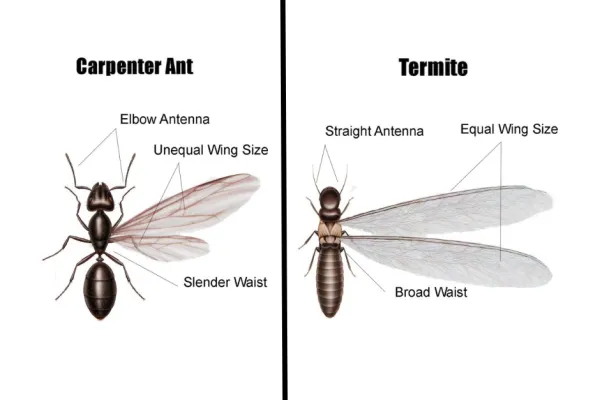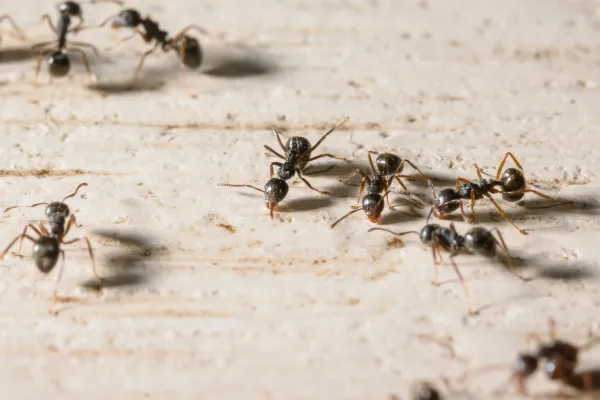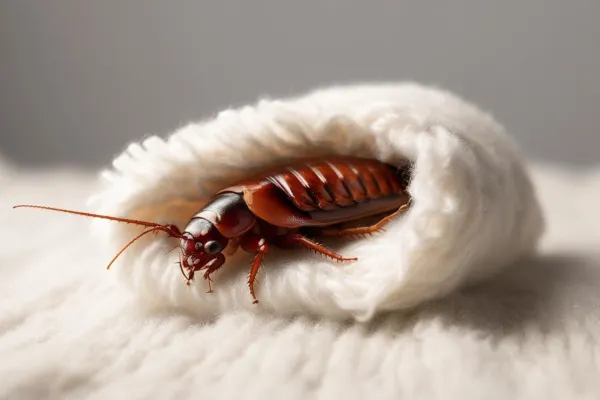8 Tips for Pest Control in Your Basement

If you have bugs in your basement, you're not alone. According to ConsumerAffairs, ants are the pest of most concern to homeowners, followed by spiders and roaches. Insects and arthropods seek food, water, and shelter in your basement. These creatures, although they mean no harm, can do considerable harm to people, pets, and belongings. Arthropods and insects aren't just unpleasant to look at, though their tiny, scuttling bodies and movements do them no favors in the popularity department. They also create and sustain allergies with their fecal matter and the bits of chitin that their bodies shed as they move. Cockroaches and other arthropods are among the most difficult pests to eliminate as a homeowner. Moreover, this is why when it comes to basement pest control, most homeowners turn to professionals. Let's discuss a few tips for pest control in your basement.
1. Repair Leaky Faucets
The first and most important element that basement pests are looking for when they come into your home is water. When your faucets leak or your pipes drip, you are creating an inviting environment for basement pests, the kind of place that lets them know there is copious water around, and they can get the thing that they need to survive. Keeping a dry basement by repairing faucets and pipes before the insects can get in is the first step to indoor pest control.
2. Check Your Gutters
At first, gutters might not seem like they have much to do with your basement. After all, gutters are attached to the roof. However, the purpose of your gutter is to direct rainwater away from the foundation of your house, to keep your foundation from getting wet, and to keep that water from seeping into your basement. This is crucial in several ways. Soaked concrete - if the ground were to freeze suddenly - can crack, creating a dangerous instability in your foundation as well as creating cracks for pests to get into your basement and creating all of those dangerous conditions for allergies and other problems. To start handling your pest problem, check your gutters. Once this is handled, also consider where your yard collects standing water and, if necessary, install drains to keep that water away from the house.
3. Add a Dehumidifier
One of the most underrated ways to control pests in your basement is by making the air drier and less hospitable to those pests. By adding a dehumidifier, you reduce or entirely remove the water that makes your basement so attractive to insects and other pests in the first place. This is a relatively simple step to take!
4. Bug-Proof Your Basement
When you add bug-proofing features to your basement, you make it harder for bugs to get inside in the first place. A crucial step is to check the weather stripping on all of your exterior doors, including any direct access from your basement to the outside lawn and landscape. If you have a basement door that leads to the outdoors, you should inspect that door periodically and make any replacements or repairs as needed. You should do the same with the sealing and screens on your basement windows. They should be secure and tight, and any cracks in the window frame's setting should be sealed with caulk. Also, make sure to seal any gaps where plumbing and wiring enter the basement from outdoors in the same way. Don't put it off if you find bugs in your basement. More will always find their way in through the same passage that the first ones did. Insects are driven by their natural urges to find secure sources for their nests and the things they need to live.
Insects in the basement, unfortunately, are a self-perpetuating problem. Once they get in, you can seldom get rid of all of them. Even if you get the most visible part of the infestation, that might only be the beginning of the issue. These tips can help you get back on top of your pest problem once you're clear that you have an infestation.
5. Consider an Inspection
A pest infestation needs to be taken care of promptly and decisively. This starts with removing everything from the basement and examining each item and cleaning it if any sign of an infestation is found These signs may be live bugs, dead bugs, or eggs. Insects like to hide, and a book bag or a long-abandoned box containing things you never unpacked from your previous home provides them the perfect niche to do so. Remember this and make sure that they never have the chance to hide in your belongings.
If your basement isn't cluttered, insects don't have places to hide. The easiest way to keep your basement pest-free is to keep the pests from feeling welcome or at home, and the easiest way for that is to make sure that they don't have any place to hide. Throw away items that you just never use anymore and anything that you do use but infrequently, making sure they're in a plastic storage bin with a lid. Don't keep piles of things lying around. They attract pests.
6. Clean
Your basement will need a prompt and thorough cleaning. Sweeping, vacuuming, and mopping will help. Wipe down every surface from joists to floor. The darker the area, the better it is for bugs, so anything you think of that you can get a cloth into, you should be cleaning. Once you've wiped everything down, thoroughly vacuum and shampoo any upholstered furniture. We recommend having a professional service deal with as much as you can since they know what they're doing and how to properly treat the household environment.
7. Remove Food
Keeping food items in the basement can be common practice. If you have a refrigerator, you can usually rely on that to protect your items. However, vegetation in the basement is an open invitation for infestations. It acts as a ready food source, and the insects will contaminate and spoil your food. If you must keep food, put it in sealed containers and use it quickly. Any spills should be cleaned up. Overall, you might be better off not keeping any open food containers in the basement at all. If your food has spoiled because of pests, call an exterminator immediately. You'll want to rid your house of them before restocking your fridge or pantries.
8. Set an Appointment With a Professional
At this point, your pest professionals should make a regular appearance. Based on an inspection of your basement and thorough cleaning of everywhere that the enemy could hide in your home, they'll give you recommendations on how to get rid of your pests and keep them away for good. If an extermination solution is recommended, they will apply it professionally and in a way that keeps your children and pets safe from the tools and chemicals that they rely on. Relying on the experts is the best way to handle your pest issue promptly.
If you find that you have pests in your home, the best time to take decisive action is immediately. Contact Mares Exterminating today to get rid of your unwelcome guests and make sure they never come back. We look forward to working with you!



